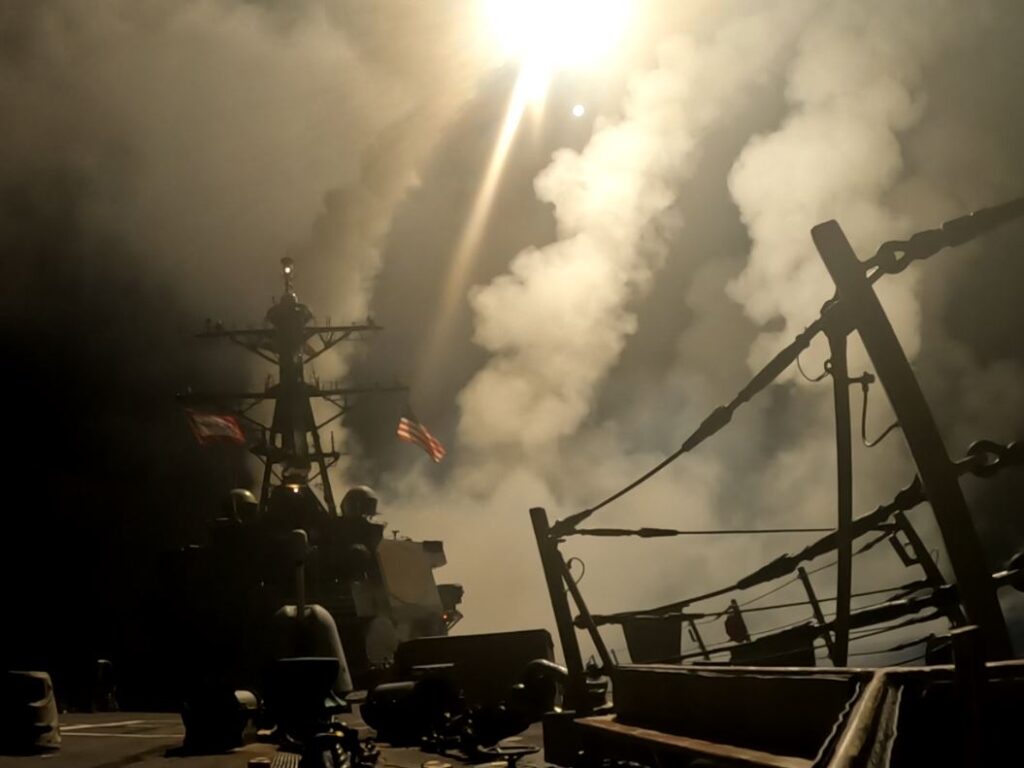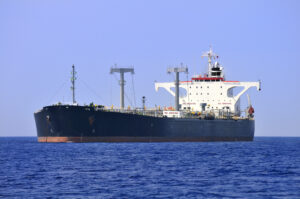
Photo credit: U.S. Central Command (CENTCOM)
Update June 22: The United States launched strikes on Iran’s main nuclear sites, including Fordow, Natanz, and Esfahan, President Trump announced Saturday evening, calling them a “spectacular military success.” In social media posts and during a late-night address from the White House, Trump described the bombings as entirely successful and warned Iran against retaliation. The decision to target Iran directly came days after the White House announced Trump would allow for two weeks to determine whether diplomacy was possible to resolve the conflict.
There is a realistic possibility that US, UK, and allied-affiliated vessels may face a heightened risk during transit if their states participate in military action against the Houthis or Iran, according to the security services specialist in maritime Ambrey, which assesses Israel-affiliated vessels to remain at high risk.
Last week, we were in negotiations with the US when Israel decided to blow up that diplomacy.
— Seyed Abbas Araghchi (@araghchi) June 22, 2025
This week, we held talks with the E3/EU when the US decided to blow up that diplomacy.
What conclusion would you draw?
To Britain and the EU High Rep, it is Iran which must "return"…
The United States, a permanent member of the United Nations Security Council, has committed a grave violation of the UN Charter, international law and the NPT by attacking Iran's peaceful nuclear installations.
— Seyed Abbas Araghchi (@araghchi) June 22, 2025
The events this morning are outrageous and will have everlasting…
Concerned by the escalating conflict in the Middle East, world leaders have reacted after the United States struck Iran’s nuclear facilities.
UK’s foreign secretary David Lammy urged Iran “to show restraint and reach a diplomatic solution to end this crisis” in a post on X, insisting that the UK did not participate in the US strikes. Prime Minister Keir Starmer earlier urged Iran to return to the negotiating table after the US’ strikes, calling Iran’s nuclear program “a grave threat to international security.”
Iran’s nuclear programme is a grave threat to international security. Iran can never be allowed to develop a nuclear weapon and the US has taken action to alleviate that threat.
— Keir Starmer (@Keir_Starmer) June 22, 2025
The situation in the Middle East remains volatile and stability in the region is a priority. We call…
Update June 20: White House press secretary Karoline Leavitt read a personal statement from Trump at Thursday’s press briefing to clear up “speculation” from the press on whether the United States would be directly involved in the military attacks on Iran. Leavitt told reporters that the president will decide if the US gets involved in the Iran-Israel conflict within the next two weeks as he believes there is a “substantial chance of negotiations.”
US president Donald Trump has once again left his position open-ended on whether the United States will take military action against Iran amid the worsening conflict with Israel.
Ambrey assesses that UK and US affiliated shipping to be at reduced risk, provided neither participates in military strikes on the Houthis or Iran.
Update June 18: Speaking from Washington during a meeting with the Juventus Football Club on Wednesday, Trump said he has “a plan for everything” but refused to share details, adding that “anything could happen.”
“I have a plan for everything, but we will see what happens. They should have made the deal. I had a great deal for them. We talked about it for 60 days, and in the end, they decided not to do it, and now they wish they had,” Trump said.
Given the concerns about the conflict between Israel and Iran boiling over into a wider war in the region, reporters were keen to ask Trump on Wednesday for a clearer answer than ‘I may do it, I may not’ when it comes to a decision on launching strikes.
Trump mentioned that Iran wanted to meet and come to the White House, but his tone suggests uncertainty about the outcome.
Days into Israel’s attacks on Iran and its nuclear program, Israeli leaders are waiting to learn whether US President Donald Trump will help them finish the job.
It has been almost a week since Israel launched airstrikes on Iran, which responded with retaliatory attacks.
While Trump’s patience “has already run out” with Tehran, the US weighs options on whether the country would get involved in the war.
Highlighting the gravity of the current developments, Trump added, “I have a meeting in the war room in a while. We are in the midst of something terrible. I hate to see so much death and destruction…”
While not revealing his full strategy, Trump hinted that decisions may be made at the last moment. “I have ideas as to what I could do, but they are not final. I like to finalise one second before it’s due. Things change. Especially with war…”
While Western nations have so far demanded a de-escalation in the conflict, there are concerns if countries like the UK could be roped into the war.
Update June 16: The UK has not been involved in the current conflict, which began when Israel targeted Iranian nuclear facilities as well as military targets.
David Lammy, UK’s secretary of state for foreign, commonwealth and development affairs, made it clear to the House of Commons on June 16 that the government’s firm view is that further escalation in the Middle East is not in Britain’s interests, nor the interests of Israel, Iran or the region.
There are hundreds of thousands of British nationals living in the region, he said. “And with Iran a major oil producer, and one fifth of total world oil consumption flowing through the Straits of Hormuz, escalating conflict poses real risks for the global economy.”
What the international community decides to do next will play a factor in the outcome of this escalating crisis.
At this point, and with such fast-moving developments, it’s difficult to say where things will go.



